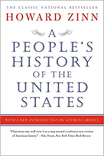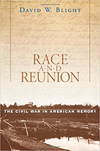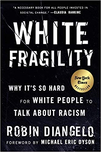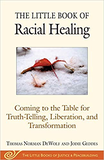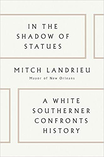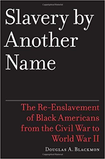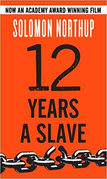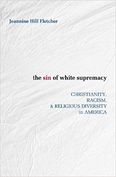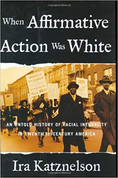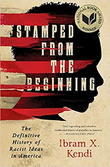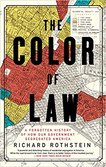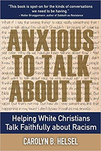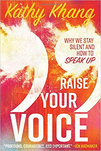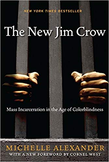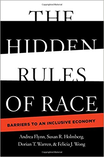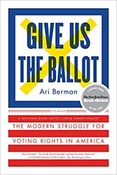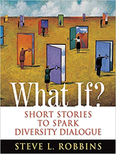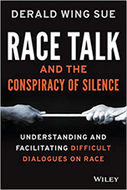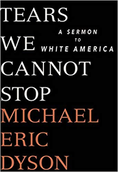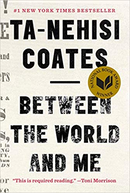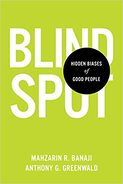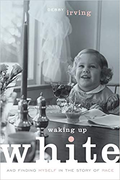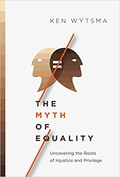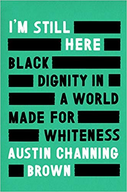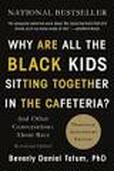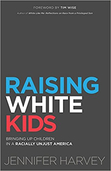Books in the Witness to Racial Reconciliation Library
|
Known for its lively, clear prose as well as its scholarly research, A People's History of the United States is the only volume to tell America's story from the point of view of—and in the words of—America's women, factory workers, African-Americans, Native Americans, the working poor, and immigrant laborers. As historian Howard Zinn shows, many of our country's greatest battles—the fights for a fair wage, an eight-hour workday, child-labor laws, health and safety standards, universal suffrage, women's rights, racial equality—were carried out at the grassroots level, against bloody resistance.
|
|
Race and Reunion, David Blight's sweeping narrative of triumph and tragedy, romance and realism, is a compelling tale of the politics of memory, of how a nation healed from civil war without justice. By the early twentieth century, the problems of race and reunion were locked in mutual dependence, a painful legacy that continues to haunt us today.
|
|
In this compelling and timely book, Daniel Hill shows you the seven stages to expect on your own path to cultural awakening. It's crucial to understand both personal and social realities in the areas of race, culture, and identity. White Awake will give you a new perspective on being white and also empower you to be an agent of reconciliation in our increasingly diverse and divided world.
|
|
Referring to the defensive moves that white people make when challenged racially, White Fragility is characterized by emotions such as anger, fear, and guilt, and by behaviors including argumentation and silence. These behaviors, in turn, function to reinstate white racial equilibrium and prevent any meaningful cross-racial dialogue. In this in-depth exploration, DiAngelo examines how white fragility develops, how it protects racial inequality, and what we can do to engage more constructively.
|
|
“Unhealed historical harms embedded in the founding of this nation continue to splinter communities across the United States. Tackling a big topic in a little book, Jodie Geddes and Tom DeWolf offer no easy answers on the difficult topic of racism. But they create a pathway for healing justice that is rooted in the decade-long experience of Coming to the Table—uncovering history (truth-telling), making connections across racial lines, working together to heal, and taking action for justice that restores. For a deeply divided nation, The Little Book of Racial Healing offers a timely and hopeful framework for conversation and action.” —J. Daryl Byler, executive director, Center for Justice and Peacebuilding
|
|
The body is where our instincts reside and where we fight, flee, or freeze, and it endures the trauma inflicted by the ills that plague society. In this groundbreaking work, therapist Resmaa Menakem examines the damage caused by racism in America from the perspective of body-centered psychology. He argues this destruction will continue until Americans learn to heal the generational anguish of white supremacy, which is deeply embedded in all our bodies. Our collective agony doesn't just affect African Americans. White Americans suffer their own secondary trauma as well. So do blue Americans—our police. My Grandmother's Hands is a call to action for all of us to recognize that racism is not about the head, but about the body, and introduces an alternative view of what we can do to grow beyond our entrenched racialized divide.
|
|
In the Shadow of Statues: Landrieu is an example of a politician who acknowledges that America’s past isn’t pretty, but he’s also working to shift a damaged culture that he feels has been ignored for too long. This is an inspiring tale that is both political and personal — urging readers to understand the country’s past and the work that is needed to change the present."—Time
|
|
This unforgettable memoir was the basis for the Academy Award-winning film 12 Years a Slave. This is the true story of Solomon Northup, who was born and raised as a freeman in New York. He lived the American dream, with a house and a loving family - a life and two kids. Then one day he was drugged, kidnapped, and sold into slavery in the deep south. These are the true accounts of his twelve hard years as a slave -
|
|
The Sin of White Supremacy: How have Christian theologies of religious superiority underwritten ideologies of white supremacy in the United States? According to Hill Fletcher, the tendency of Christians to view themselves as the "chosen ones" has often been translated into racial categories as well. In other words, Christian supremacy has historically lent itself to white supremacy, with disastrous consequences. How might we start to disentangle the two? Hill Fletcher proposes strategies that will help foster racial healing in America, the first of which is to demand of white Christians that they accept their responsibility for racist policies and structural discrimination in America
|
|
When Affirmative Action Was White: A study on the lesser-known origins of affirmative action argues that key programs passed during the New Deal and Fair Deal era of the 1930s and 1940s were purposefully discriminatory, revealing how Southern Democrats widened the gap between black and white Americans through specific restrictions in social security, the GI bill, and landmark labor laws.
|
|
Stamped From the Beginning
The National Book Award winning history of how racist ideas were created, spread, and deeply rooted in American society. Some Americans insist that we're living in a post-racial society. But racist thought is not just alive and well in America--it is more sophisticated and more insidious than ever. And as award-winning historian Ibram X. Kendi argues, racist ideas have a long and lingering history, one in which nearly every great American thinker is complicit. |
|
The Color of Law: Essential...Rothstein persuasively debunks many contemporary myths about racial discrimination. Only when Americans learn a common--and accurate--history of our nation's racial divisions, he contends, will we then be able to consider steps to fulfill our legal and moral obligations. For the rest of us, still trying to work past 40 years of misinformation, there might not be a better place to start than Rothstein's book.--Rachel M. Cohen
|
|
If talking about racism makes you anxious, afraid, or even angry, you're not alone. In Anxious to Talk about It, pastor and professor Carolyn B. Helsel draws on her success with white congregations to offer insight and tools to embrace, explore and work through the anxious feelings that often arise in these hard conversations.
|
|
Raise Your Voice: Because God created us in our ethnicity and gender, our voice is uniquely expressed through the totality of who we are. We are created to speak, and we can both speak up for ourselves and speak out on behalf of others. Khang offers insights from faithful heroes who raised their voices for the sake of God's justice, and she shows how we can do the same today, in person, in social media, in organizations, and in the public square.
|
|
Once in a great while a book comes along that changes the way we see the world and helps to fuel a nationwide social movement. The New Jim Crow is such a book. Praised by Harvard Law professor Lani Guinier as "brave and bold," this book directly challenges the notion that the election of Barack Obama signals a new era of colorblindness. With dazzling candor, legal scholar Michelle Alexander argues that "we have not ended racial caste in America; we have merely redesigned it."
|
|
The Hidden Rules of Race: While many Americans are familiar with the histories of slavery and Jim Crow, we often don't understand how the rules of those eras undergird today's economy, reproducing the same racial inequities 150 years after the end of slavery and 50 years after the banning of Jim Crow segregation laws. This book shows how the fight for racial equity has been one of progress and retrenchment, a constant push and pull for inclusion over exclusion. By understanding how our economic and racial rules work together, we can write better rules to finally address inequality in America.
|
|
Countless books have been written about the civil rights movement, but far less attention has been paid to what happened after the dramatic passage of the Voting Rights Act in 1965 and the turbulent forces it unleashed. In this groundbreaking narrative history, Ari Berman charts both the transformation of American democracy under the VRA and the counterrevolution that has sought to limit it from the moment the act was signed into law. Through meticulous research, in-depth interviews, and incisive on-the-ground reporting, Give Us the Ballot offers the first comprehensive history of its kind, and provides new insight into one of the most vital political and civil rights issues of our time.
|
|
What If? delivers a highly creative and innovative new way to explore the issues that dominate today's multicultural, multiethnic workplace. To the twenty-five witty yet inspiring stories in this collection, Steve Long-Nguyen Robbins has added tips and suggestions for putting these key learnings into action. Combined, What If? offers a powerful lens into the human experience.
|
|
If you believe that talking about race is impolite, or that "colorblindness" is the preferred approach, you must read this book. Race Talk and the Conspiracy of Silence debunks the most pervasive myths using evidence, easy-to-understand examples, and practical tools.
This significant work answers all your questions about discussing race by covering:
|
|
Short, emotional, literary, powerful―Tears We Cannot Stop is the book that all Americans who care about the current and long-burning crisis in race relations will want to read.
As the country grapples with racist division at a level not seen since the 1960s, one man's voice soars above the rest with conviction and compassion. In his 2016 New York Times op-ed piece "Death in Black and White," Michael Eric Dyson moved a nation. Now he continues to speak out in Tears We Cannot Stop―a provocative and deeply personal call for change. Dyson argues that if we are to make real racial progress we must face difficult truths, including being honest about how black grievance has been ignored, dismissed, or discounted. |
|
Between the World and Me: Ta-Nehisi Coates shares with his son—and readers—the story of his awakening to the truth about his place in the world through a series of revelatory experiences, from Howard University to Civil War battlefields, from the South Side of Chicago to Paris, from his childhood home to the living rooms of mothers whose children’s lives were taken as American plunder. Beautifully woven from personal narrative, reimagined history, and fresh, emotionally charged reportage, Between the World and Me clearly illuminates the past, bracingly confronts our present, and offers a transcendent vision for a way forward.
|
|
Blindspot is the authors’ metaphor for the portion of the mind that houses hidden biases. Writing with simplicity and verve, Banaji and Greenwald question the extent to which our perceptions of social groups—without our awareness or conscious control—shape our likes and dislikes and our judgments about people’s character, abilities, and potential.
|
|
For twenty-five years, Debby Irving sensed inexplicable racial tensions in her personal and professional relationships. As a colleague and neighbor, she worried about offending people she dearly wanted to befriend. As an arts administrator, she didn't understand why her diversity efforts lacked traction. As a teacher, she found her best efforts to reach out to students and families of color left her wondering what she was missing. Then, in 2009, one "aha!" moment launched an adventure of discovery and insight that drastically shifted her worldview and upended her life plan. In Waking Up White, Irving tells her often cringe-worthy story with such openness that readers will turn every page rooting for her-and ultimately for all of us.
|
|
It's clear that issues of race and equality have come to the forefront in our nation's consciousness. Every week yet another incident involving racial tension splashes across headlines and dominates our news feeds. But it's not easy to unpack the origins of these tensions, and perhaps we wonder whether any of these issues really has anything to do with us. Ken Wytsma has gone through his own journey of understanding the underpinnings of inequality and privilege. In this timely, insightful book Wytsma unpacks what we need to know to be grounded in conversations about today's race-related issues. And he helps us come to a deeper understanding of both the origins of these issues and the reconciling role we are called to play as witnesses of the gospel. Inequality and privilege are real. The Myth of Equality opens our eyes to realities we may have never realized were present in our society and world. And we will be changed for the better as a result.
|
|
In a time when nearly all institutions (schools, churches, universities, businesses) claim to value "diversity" in their mission statements, I'm Still Here is a powerful account of how and why our actions so often fall short of our words. Austin writes in breathtaking detail about her journey to self-worth and the pitfalls that kill our attempts at racial justice, in stories that bear witness to the complexity of America's social fabric--from Black Cleveland neighborhoods to private schools in the middle-class suburbs, from prison walls to the boardrooms at majority-white organizations.
|
|
Why Are All the Black Kids sitting Together in the Cafeteria? Walk into any racially mixed high school and you will see Black, White, and Latino youth clustered in their own groups. Is this self-segregation a problem to address or a coping strategy? Beverly Daniel Tatum, a renowned authority on the psychology of racism, argues that straight talk about our racial identities is essential if we are serious about enabling communication across racial and ethnic divides. These topics have only become more urgent as the national conversation about race is increasingly acrimonious. This fully revised edition is essential reading for anyone seeking to understand the dynamics of race in America.
|
|
With a foreword by Tim Wise, Raising White Kids is for families, churches, educators, and communities who want to equip their children to be active and able participants in a society that is becoming one of the most racially diverse in the world while remaining full of racial tensions. For white people who are committed to equity and justice, living in a nation that remains racially unjust and deeply segregated creates unique conundrums.
|
|
Pebble Hill Presbyterian Church
5299 Jamesville Road DeWitt, NY 13214 315-446-0960 Office hours: Monday: 9:00 am - 1:00 pm Tuesday: 9:00 am - 1:00 pm Wednesday: 9:00 am - 1:00 pm Thursday: 9:00 am - 1:00 pm Closed Friday Email: [email protected] 10:00 a.m. - Worship Service |

